2022 New York City ISNVD Annual Meeting
Meeting Date: July 21 -23, 2022
The conference will be held at the NYU Langone Health main medical campus in Schwartz Lecture Hall, which is located in the midtown of Manhattan, overlooks the east river, and is easily accessible from all points in the greater New York area through the city’s comprehensive public transport system (subway, buses and ferries). NYU medical campus has a long history of being the host of numerous medical conferences, workshops, and symposium.
NYU Langone Health
Schwartz Lecture Hall, 550 First Avenue,
New York, NY 10016
Meeting Contact:
Li Jiang: li.jiang@isnvd.org
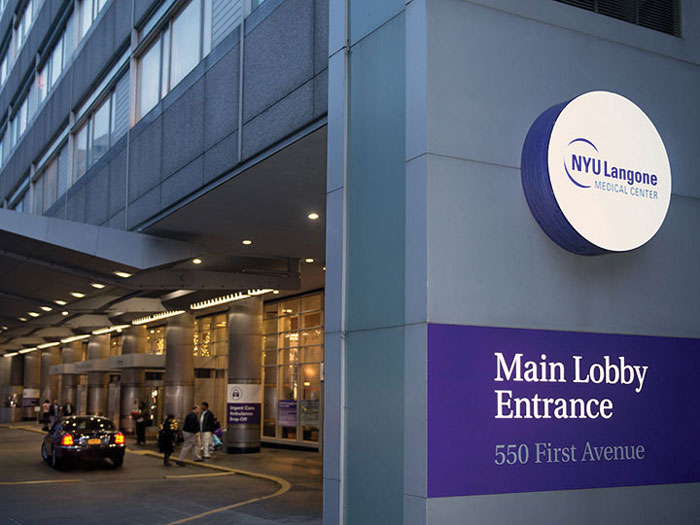

Seven theme sessions and education course planned
The 10th ISNVD Meeting will provide distinctive opportunity to learn from both biomedical sciences and clinicians regarding the role of cerebral vascular changes in aging and dementia:
- Vascular anatomy and neurovascular physiology of the brain
- Vascular contributions to cognitive impairment and dementia (VCID)
- Genetics, sleep, exercise, and dietary relations with dementia
- Advanced neurovascular imaging in aging and dementia
- Diabetes, stroke, traumatic brain injury (TBI) and dementia
- CSF dynamics, glymphatic and venous drainage system
- Therapeutic approaches and strategies on vascular diseases & neurodegeneration
The full Meeting program can be found here:
Register and submit your abstract!
Abstract Submission Deadline: June 20, 2022 @ 23:59 EST
Abstract Formatting Details:
All abstracts related to neurovascular research, neurodegenerative diseases, aging, or dementia are encouraged to submit. Abstracts are limited to one page in length (page dimension: 8.5"x11" or A4), including all authors, affiliations, images, tables, graphs and references. Font size should be no smaller than 10 pt. Margins should be at least ½" or 1.27cm on all four sides.
Abstract submission instructions:
- 1. Abstracts should be submitted via email: abstracts@isnvd.org.
- 2. The subject of the email should be "Abstract submission for ISNVD2022".
- 3. The following information should be included in the body of the email (not abstract):
- Name of the submitting author:
- Email address of the submitting author:
- The primary affiliation of the submitting author:
- Preferred type of presentation: (oral, poster, or virtual)
- Eligibility for Young Investigator Award (YIA)*: (yes or no)
- Eligibility for Travel Stipend Award (TSA)**: (yes or no)
- 4. The abstract file (PDF format) should be included as attachment to the email.
If you cannot present your work in person for this meeting due to travel restrictions or other reasons, you are still able to present your research virtually this year by electronic poster or pre-recorded power pitch.
*Note: The Young Investigator Award (YIA) at ISNVD'2022 is to inspire the promising investigators from all countries in the world to promote the neurovascular and dementia research. Three YIAs will be awarded: First place: $600; Second place: $400; Third place: $300. The YIA selection will be based on the evaluation of both abstract content and presentation at the meeting.
*Eligibility for YIA: (1) abstract accepted for oral presentation, (2) meeting registered, (3) young investigator with age under 35 years old, and (4) CV and a recommendation letter are required for the YIA competition.
**Eligibility for Travel Stipend Award:: (1) Student applicants with a letter of mentor, and (2) abstract accepted as either poster or oral presentation. Student travel stipends of $500/each will be selected from trainees to defray some travel expenses of attending the meeting. To apply for the award, please send: (1) a copy of acceptance email of abstract, (2) a cover letter, explaining the need, merit and dedication, (3) a current resume, and (4) one letter for recommendation, preferably from your current supervisor. Application material must be sent to abstracts@isnvd.org by June 27, 2022.
Meeting Registration
Please note: To attend the conference, you have to register. There is no onsite registration; all registration has to be done online here.Your registration fee will include:
(1) Meal tickets for 3 breakfasts (Thursday/Friday/Saturday), 2 lunches (Thursday/Friday), and 1 reception dinner (Thursday)
(2) Admission to plenary and all scientific sessions
(3) Cruise tour sail around Manhattan island
(4) Free social and networking events
(5) A digital group photo
(6) One year of complementary ISNVD membership: you will automatically become a ISNVD member for July 2022 – June 2023 after you register.
Travel stipends for students, post-docs and fellows!
Eligibility for Travel Stipend Award: (1) Student, post-doc, and trainee of physician (e.g., residents and fellows) applicants with a letter from mentor, and (2) abstract accepted as either poster or oral presentation.
There will be eight student travel stipends of $500 each to defray some travel expenses of attending the meeting. To apply for the award, please send: (1) a copy of acceptance email of abstract, (2) a cover letter, explaining the need, merit and qualification, (3) a current resume, and (4) one letter for recommendation, preferably from your current supervisor.
Application material must be sent to abstracts@isnvd.org by June 27, 2022.
Young investigator award (YIA)
The Young Investigator Award (YIA) at ISNVD'2022 is to inspire the promising investigators from all countries in the world to promote the neurovascular and dementia research. Three YIAs will be awarded: First place: $600; Second place: $400; Third place: $300. The YIA selection will be based on the evaluation of both abstract content and presentation at the meeting.
Eligibility for YIA: (1) abstract accepted for oral presentation, (2) meeting registered, (3) young investigator with age under 35 years old, and (4) CV and a recommendation letter are required for the YIA competition.
Become a member
The ISNVD is an association for professionals, including physicians, technologists, health care professionals, and corporate members as well as trainees including students, post-docs, clinical residents and fellows.
Join the community
Membership Benefits:
- Access to the ISNVD Forum: A community of professionals sharing information, documentation and stories, and searching for help from colleagues.
- Educational Opportunities: ISNVD will provide workshop, seminars, and webinars regarding the recent research advances on neurovascular diseases. This benefit includes advance notice of educational opportunities around the world.
- ISNVD Annual Meeting: Reduced registration fee at the ISNVD annual meetings including ISNVD'2022 and you will save $50.
- ISNVD Annual Image Processing Tools: To share image processing tools for MRI data analysis.
- Networking Opportunities: Network with professionals at meetings, workshops, the forum and through volunteering.
- Mentoring Program: Become a mentor or mentee through your ISNVD membership
- Membership Directory: Access to our membership directory, an easy way to connect with colleagues and potential mentors.
Accommodation
Book your hotel reservations for ISNVD'2022 in New York City.
303 Lexington Avenue, New York, NY 10016
Tel: (212) 689-5200
Hilton Garden Inn
45 East 33rd Street, New York, NY 10016
Tel: (212) 755-1108
The Marmara Park Avenue
114 East 32 Street, New York, NY 10016.
Tel: (212) 603-9000
Arlo Nomad
11 East 31st Street, New York, NY 10016
Tel: (212) 806-7000
Royalton Park Avenue
420 Park Avenue South, New York, NY 10016
Tel: (212) 317-2900
Pod 39
145 E 39th Street, New York, NY 10016
Tel: (844) 763-7666


Accreditation
The program has been approved for 15.25 AMA PRA Category 1 Credit(s) TM
ACCREDITATION
This activity has been planned and implemented in accordance with the accreditation requirements and policies of the Accreditation Council for Continuing Medical Education (ACCME) through the joint providership of the University at Buffalo Jacobs School of Medicine and Biomedical Sciences and International Society for Neurovascular Disease (ISNVD). The University at Buffalo Jacobs School of Medicine and Biomedical Sciences is accredited by the ACCME to provide continuing medical education for physicians.
CERTIFICATION
The University at Buffalo Jacobs School of Medicine and Biomedical Sciences designates this live activity for a maximum of 15.25 AMA PRA Category 1 Credit(s) TM. Physicians should claim only the credit commensurate with the extent of their participation in the activity.

Women, Minorities and Disabled Persons
The ISNVD has a long history of outreach to women and minorities in the field of bioengineering. Every effort is made to encourage the participation of women, racial/ethnic minorities and persons with disabilities in the conference. A number of the ISNVD committee members are women and women are present at all levels of the Society. Two of the 3 finalists in the 2019 YIA Competition were women. As in previous years, in ISNVD 2022, there will be a number of events organized by the Women, with talks given by women, including plenary talk. The NYU School of Medicine medical campus, site of ISNVD'2022, is committed to providing an accessible environment and accommodating the needs of people with disabilities. The facility has wheelchair services, accessible elevators, accessible restroom stalls, unisex restrooms to accommodate a guest with special requirements and their attendant, or for families with young children.
Conference Chair
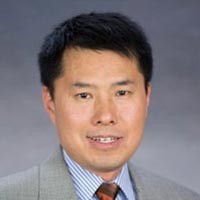 | Yulin Ge, MD. President of International Society for Neurovascular Diseases (ISNVD), Conference Chair of ISNVD’2022. Professor of Radiology, New York University (NYU) School of Medicine. Title: “Seeing is Believing: Ultra-high Field MRI in Neurovascular Research” Bio |
Conference Co-Chair
 | E Mark Haacke, PhD. Past President, Conference Co-Chair of ISNVD’2022. Professor of Radiology, Wayne State University, Vice-Chairman, Biomedical Engineering in the School of Medicine. Title: “Applications of STAGE Imaging in Neurodegenerative Diseases” Bio |
Keynote Speakers
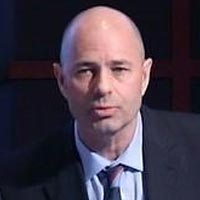 | Roderick A. Corriveau, PhD. Program Director, Division of Neuroscience, National Institute of Neurological Disorder and Stroke (NINDS).. Title: “NINDS Programs and Vision for Vascular Contributions to Cognitive Impairment and Dementia (VCID)”. Bio |
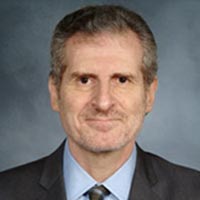 | Costantino Iadecola, MD. Director and Chair of the Feil Family Brain and Mind Research Institute and the Anne Parrish Titzell Professor of Neurology at Weill Cornell Medicine. Title: “Neurovascular Risk Factors and Dysfunction in Aging and Dementia” Bio |
Other Faculty Members (in alphabetical order)
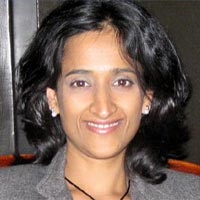 | Nivedita Agarwal, MD. Neurologist and neuroradiologist in the Hospital of Rovereto, Azienda Provinciale per i Servizi Sanitari, Italy Title: “Vascular Anatomy of the Brain: Macro and Microvasculature”. Bio |
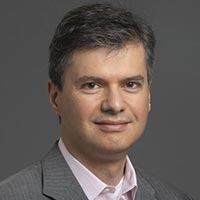 | Konstantinos Arfanakis, PhD. Professor, Department of Biomedical Engineering, Director of MR research, Department of Biomedical Engineering. Core Leader, Biomarker/Neuroimaging Core, Rush Alzheimer’s Disease Center, Rush University Medical Center. Title: “ARTS: A Marker of Arteriolosclerosis”. Bio |
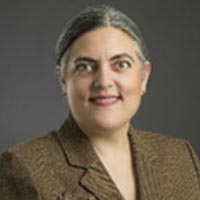 | Zoe Arvanitakis, MD, MS. Acting Chairperson and a Professor in the Department of Neurological Sciences of the Rush Medical College, and the Medical Director of the Rush Memory Clinic at the Rush Alzheimer’s Disease Center, at Rush University Medical Center in Chicago. Title: “The Association of Diabetes with Dementia” Bio |
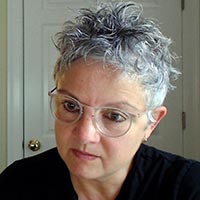 | Helene Benveniste, PhD. Professor of Anesthesiology at the Yale School of Medicine. Title: “Glymphatic System transport changes in animal models of cerebral small vessel disease” Bio |
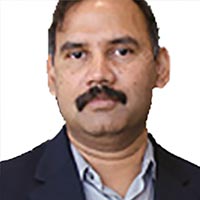 | Bharat B. Biswal, PhD. Distinguished Professor, Bio-Medical Engineering; Director, Center for Brain Imaging, New Jersey Institute of Technology (NJIT). Title: “TBD” Bio |
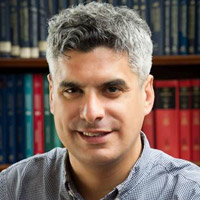 | Adam M. Brickman, PhD. Professor of Neuropsychology, Taub Institute for Research on Alzheimer's Disease and the Aging Brain, Department of Neurology, Vagelos College of Physicians and Surgeons, Columbia University Title: “White matter hyperintensities are a core feature of Alzheimer’s disease: Evidence from late onset and genetic forms” Bio |
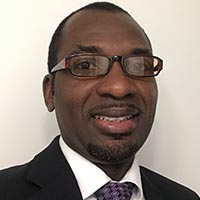 | Omonigho Michael Bubu, MD, PhD., M.P.H. Assistant Professor and physician scientist at NYU Grossman School of Medicine (NYUSoM), in the Departments of Psychiatry, Population Health and Neurology Title: “Sleep Clues to Alzheimer's Disease” Bio |
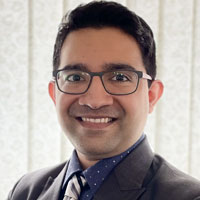 | Sagar Buch, PhD. Assistant Professor, Department of Neurology, Wayne State University, USA. Title: “In vivo Vascular Mapping of the Human Hippocampus Using MICRO Imaging” Bio |
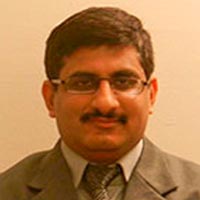 | Sanjeev Chawla, PhD., DABMP. Assistant Professor of Radiology at University of Pennsylvania. Title: “Emerging Metabolic Imaging and Spectroscopic Methods to Study Neurodegenerative Diseases” Bio |
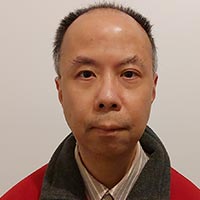 | David Chu, PhD. Chief Scientist for Advanced Applications at FONAR Corporation in New York. Title: “The Influence of Body Position on Cerebrospinal Fluid Circulation” Bio |
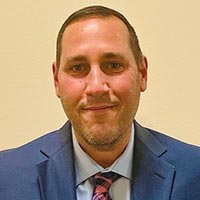 | William P. Daley, PhD. Program Director, National Institute of Neurological Disorder and Stroke (NINDS). Title: “The NINDS Stroke Portfolios: Updates and New Opportunities” Bio |
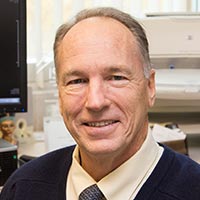 | Charles S DeCarli, MD. Distinguished Professor of Neurology at the University of California in Davis, California and recipient of the Victor and Genevieve Orsi Chair in Alzheimer’s Research Title: “Vascular Cognitive Impairment: Where Have Been and Where We Are Going” Bio |
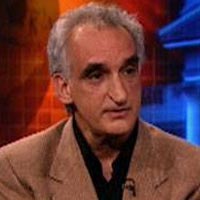 | Mony de Leon, Ed.D. Professor of Radiology at Weill Cornell Medicine Title: “Human CSF Clearance Egress Pathways and Clinical Significance in Alzheimer's Disease” Bio |
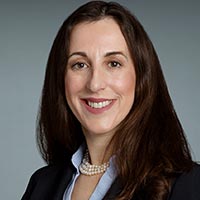 | Jennifer Frontera, MD. Professor of neurology at NYU Grossman School of Medicine and specializes in neurocritical care and stroke. Title: “Acute and Post-acute COVID-19 Related Cognitive Impairment: The Relationship with Endothelial Dysfunction, Inflammation and Neurodegeneration” Bio |
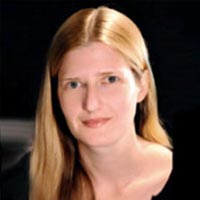 | Elizabeth M.C. Hillman, PhD. Professor of Biomedical Engineering and Radiology at Columbia University and a member of the Columbia Zuckerman Mind Brain Behavior Institute, as well as the Kavli Institute for Brain Science. Title: “The Role of the Vascular Endothelium in Neurovascular Coupling” Bio |
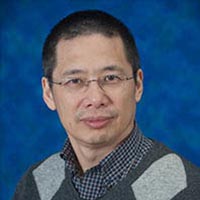 | Jiani Hu, PhD. Professor of Radiology and Co-Director of MR Research Facility, Wayne State University. Title: “New Quantitative Results for the Direct Participation of the Parenchymal Vascular System in Cerebral Waste Removal” Bio |
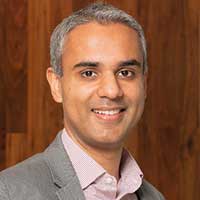 | Arfan Ikram, MD, PhD. Professor and Chair of Epidemiology at the department of Epidemiology, Erasmus MC Rotterdam, the Netherlands. Adjunct professor of Epidemiology at the Harvard Chan School of Public Health. Title: “The Intricate Relation between Genetics and Lifestyle in the Etiology of Dementia” Bio |
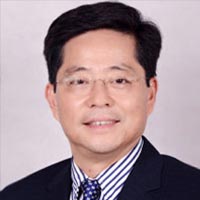 | Kunlin Jin, PhD. Dr. Jin is a Tenured Professor at the University of North Texas Health Science Center, United States. Title: “Neuroinflammation and Vascular Dementia” Bio |
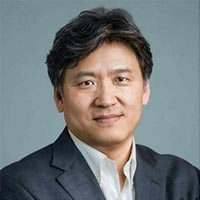 | Gene S Kim, PhD. Professor of Biomedical Engineering in Radiology at Weill Cornell Medical College. Title: “Dynamic Contrast Enhanced MRI for Assessment of BBB: Challenges and New Opportunities” Bio |
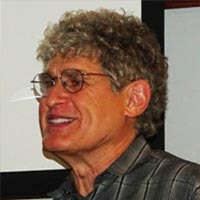 | David Kleinfeld, PhD. Distinguished Professor of Physics and Biology at the University of California at San Diego (UCSD), Fellow of American Academy of Arts and Sciences. Title: “The brain Vascular Connectome and Brain-Wide Arteriole Dynamics” Bio |
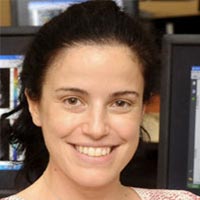 | Elisa Konofagou, PhD. Robert and Margaret Hariri Professor of Biomedical Engineering and Professor Radiology as well as Director of the Ultrasound and Elasticity Imaging Laboratory at Columbia University in New York City. Title: “Imaging the vascular elasticity in vivo- effects of aging, hypertension and atherosclerosis” Bio |
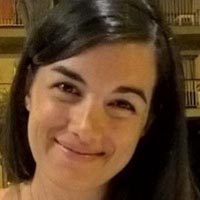 | Marcella Lagana, PhD. Dr. Lagana holds a Doctorate in Biomedical Engineering (2010) from Politecnico di Milano, Milan, Italy Title: “Measuring Respiratory and Cardiac Influences on Blood and Cerebrospinal Fluid Flow with Real-Time MRI” Bio |
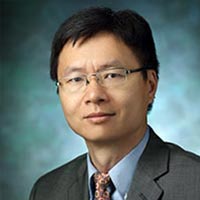 | Hanzhang Lu, PhD. Professor of Radiology, Chief of Neurofunction Section at Johns Hopkins University. Title: “Imaging Biomarkers in Vascular Cognitive Impairment and Dementia (VCID)” Bio |
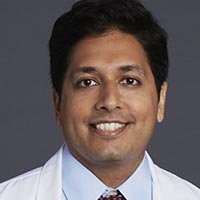 | Arjun Masurkar, MD, PhD. Assistant Professor of Neurology and Neuroscience & Physiology at the NYU Grossman School of Medicine, and Clinical Core Director of the NYU Alzheimer's Disease Research Center. Title: “Emerging and Overlapping Rules of Hippocampal Cellular Vulnerability between Alzheimer's Disease, Vascular Disease, and Epilepsy” Bio |
 | Matthias van Osch, PhD. Professor of Radiology, Leiden University Medical Center, Leiden, The Netherlands and vice-director of the C.J. Gorter Center for high field MRI. Title: “Probing CSF Mobility for Human Brain Clearance MRI: Water Transport across the Blood-CSF Barrier and Mobility of CSF in Perivascular Spaces” Bio |
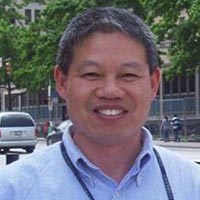 | Yongxian Qian, PhD. Assistant Professor of Radiology at New York University (NYU) Grossman School of Medicine. Title: “CSF Bulk Flow in the Human Brain via Dynamic Sodium (23Na) MRI” Bio |
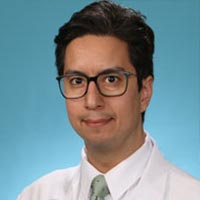 | Cyrus Raji, MD, PhD. Assistant Professor of Radiology, Mallinckrodt Institute of Radiology, Washington University in St. Louis. Title: “Multi-Modal Neuroimaging of Traumatic Brain Injury and Chronic Traumatic Encephalopathy” Bio |
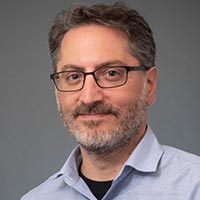 | David Salat, PhD. Associate Professor in Radiology, Harvard Medical School. Assistant Neuroscientist, Massachusetts General Hospital. Title: “Vascular Physiology, White Matter Lesions, Neurodegeneration, and Alzheimer’s Disease” Bio |
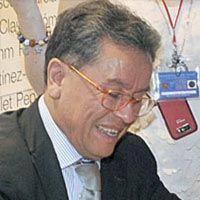 | Eleuterio F. Toro, PhD. Emeritus Professor of Mathematics at the University of Trento, Italy and formerly a full Professor of Numerical Analysis at the same University in Italy. Title: “Neurofluid Dynamics and Neuropathologies in a Holistic Framework” Bio |
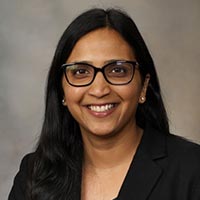 | Prashanthi Vemuri, PhD. Professor of Radiology at Mayo Clinic, Rochester, Minnesota, Dr. Vemuri is a Professor in the Department of Radiology, Mayo Clinic Rochester Title: “Incorporating VCID Imaging Biomarkers in AD/ADRD Studies” Bio |
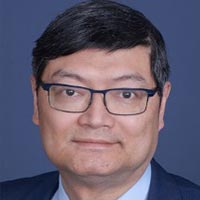 | Danny JJ Wang, PhD. Professor of Neurology and Radiology, Director of Imaging Technology Innovation at the Stevens Neuroimaging and Informatics institute, University of Southern California (USC), as well as head of the Laboratory of Functional MRI technology (LOFT www.loftlab.org). Title: “Mapping Subtle BBB Changes with Contrast and Noncontrast MRI” Bio |
 | Meiyun Wang, MD. Professor and Chair of the Medical Imaging Center of Henan Province and Chair of the Department of Radiology of Henan Provincial People’s Hospital. Title: “The Advancement of MRI in Stroke” Bio |
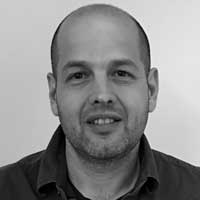 | Paul Yushkevich, PhD. Associate professor in the Department of Radiology and a member of the Bioengineering Graduate Group. Title: “Detailed Morphometry of the Human Medial Temporal Lobe in Neurodegenerative Disease” Bio |
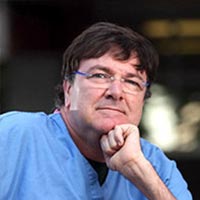 | Paolo Zamboni, MD. Professor, Chair of Vascular Surgery and Program Director of the School of Vascular Surgery, University of Ferrara, Italy Title: “Venous Abnormalities in Neurodegenerative Diseases” Bio |
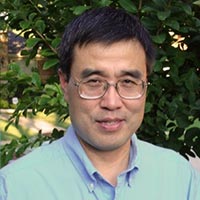 | Rong Zhang, PhD. Professor of Departments of Neurology and Internal Medicine/Cardiology at UT Southwestern Medical Center, Director of Cerebrovascular Laboratory at the Institute for Exercise and Environmental Medicine Texas Health Resources Presbyterian Hospital Dallas. Title: “Aerobic Exercise Training Reduces Central Arterial Stiffness and Improves Cerebral Blood Flow in Older Adults” Bio |


